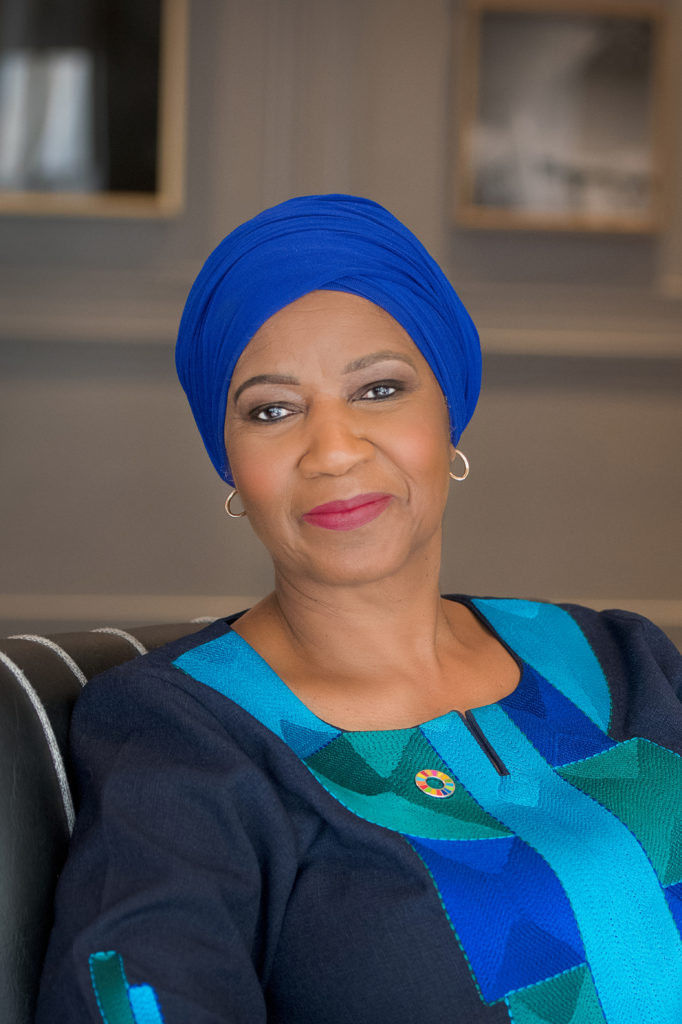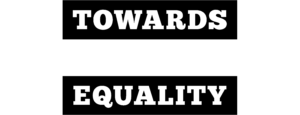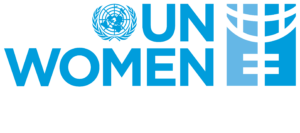Gender Equality: “Now is a critical moment to shift course and accelerate constructive change.”

Phumzile Mlambo-Ngcuka, UN Under-Secretary-General and Executive Director, UN Women
Crédit: UN Women
By Phumzile Mlambo-Ngcuka, UN Under-Secretary-General and Executive Director, UN Women
As countries look to rebuild greener, more resilient and gender-equal economies in the wake of the COVID-19 pandemic, the richness of the diversity of women’s talents, ideas and innovations in decision-making spaces is needed more than ever. Yet women hold just 26.1 % of 35,500 parliamentary seats across 156 countries. They represent just 29% of those in senior management – and are even more absent from executive roles.
The situation in the media continues to be of concern, with results from the Global Media Monitoring Project showing that women and women’s voices remain shockingly absent from global news coverage, especially the most marginalized. This worsened during 2020, as women’s voices and expertise were largely missing from coverage about the pandemic; women were only a third of all those quoted about the pandemic and a quarter of those quoted on topics of epidemiology and public health.
Now is a critical moment to shift course and accelerate constructive change.
The Generation Equality Forum in Paris (30 June – 2 July), offers a pivotal moment to create that much-needed change. At this landmark conference, we are calling for governments, companies and organizations to join us to make bold commitments to advance gender equality.
We are mobilizing around a Global Acceleration Plan centred around six Action Coalitions, covering everything from climate justice and feminist movements and leadership, to gender-based violence and economic justice and rights. The Action Coalitions bring together the broad range of actors needed to drive progress forward now and post COVID-19 – setting civil society activists shoulder-to-shoulder with leaders from trade unions, media, parliamentary representatives, business leaders and government agencies.
By the time of the Paris Forum, we hope that these multilateral, inter-generational and vibrant partnerships will have catalysed well-financed and transformational commitments for the six Action Coalitions and for the Compact for Women, Peace, Security and Humanitarian Action.
What could transformative commitments look like in the media industry? And how could they create more accurate and inclusive representation as the world re-builds?
One way is by committing to adopt codes of conduct that define and actively redress gender discrimination and stereotyping, starting with an increase in women’s leadership within the media industry. We want to see a deliberate drive for gender balance in senior leadership and creative roles while addressing unconscious bias, diversity and inclusion through training as a standard across the industry.
Another way is by increasing the representation of women as experts in news coverage. Women comprise 70 per cent of health care workers and are in several countries excelling in COVID-19 response, providing powerful examples of how women’s leadership and participation can provide more effective, inclusive, and fair policies, plans and budgets to address the pandemic. Yet a 2020 report commissioned by the Bill & Melinda Gates Foundation shows that in global news coverage of the pandemic, just 19% of expert sources consulted were women compared to 77% men. As we recover from the COVID-19 crisis, promoting gender equality and gender-specific medical expertise in the media must become a focus of specific intention, in order to positively redress this imbalance.
Another essential component of a gender-equal post-COVID society is a commitment to tell women’s stories and communicate their perspectives, on an equal footing with those of men, and end blatant sexist stereotyping. When stories lean on stereotypes or portray women only as victims, rigid gender roles are reinforced for both sexes. This past year we saw how fast traditional gender stereotypes are reasserted when crisis strikes, especially at home where decisions were being made about caregiving responsibilities; and the media play a powerful role in countering this trend.
Doing this work together through international media alliances, such as Towards Equality, is essential to create solidarity and accountability for this at the highest levels. We have seen through the Unstereotype Alliance, which UN Women launched in 2017, how commitments from industry leaders to change how women and men are represented in their advertising and marketing materials can grow into an influential global movement strengthened by solidarity and backed by accountability.
We cannot build back better after COVID-19 without gender equality. Now is the moment for leaders, in the media and in every sector, to publicly commit to supporting women’s equal and accurate representation and access to opportunities.
Committing to the Generation Equality Global Acceleration Plan will set us on the path towards a more sustainable and just future, to ensure a more inclusive media landscape, and the realization of the 2030 Agenda. I invite all media organizations, countries, businesses, civil society and youth organizations to join us by making a commitment.

This article is being published as part of “Towards Equality”, an international and collaborative initiative gathering 15 international news outlets to highlight the challenges and solutions to reach gender equality.




